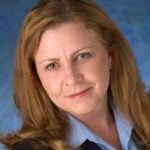
The healthcare debate and the Notre Dame scandal have put the U.S. bishops in the spotlight quite a bit recently, often showing them to be greatly at odds with one another on important issues. There’s nothing new about their being at odds, of course; what’s new is that it’s so public. I am not sure whether this is a good thing or not; I tend to think it is. In any case, it has reinforced my opinion that the conference spends a scandalous amount of its resources pronouncing on public policy. Jeffrey Mirus does an admirable job of arguing that such pragmatic matters, which admit of different solutions, are better left to lay people, who are called to grapple with them. Bishops, on the other hand, are primarily shepherds.
As I was reading Dr. Mirus’ article, I remembered a story told me by Bishop John D’Arcy of Fort Wayne-South Bend. It was during the height of the abuse scandal, and I was asking him about being a bishop, how he liked it, whether he got tired, or whether the responsibility seemed overwhelming sometimes. (He is the sort of person you would feel comfortable asking such things.) He told me that when he began to hear rumors that he would be made bishop, it scared him. He thought to himself that if he could push a button to prevent it, he would. Nevertheless, he asked advice from a priest he admired, who suggested that the best thing to do would be to study what a bishop is and what he does, and then pray about whether he could do that.
So that’s what he did. He went first to the documents of Vatican II, specifically Lumen Gentium, meditating on how each person is called to respond in a particular way to the universal call to holiness. Lay people are “to illuminate and order all temporal things” (31). Priests are to be the bishops’ “immediate collaborators [in] the duty of completing and consolidating the work” begun by the apostles (20).
But he gave his closest attention to the role of bishop. Quoting St. Clement of Rome , the document says that bishops are “teachers of doctrine, ministers of sacred worship, and holders of office in government” (20). And he thought: That’s what I do already here at the seminary; the office of bishop is a spiritual office. The bishop is primarily a shepherd. Indeed, the most frequent word in chapter three is “shepherd.”
He continued to pray. On a family holiday in Cape Cod, while praying and walking at the beach, he felt that if he were called, he could accept. When the call came, he said yes, and promised the Lord, “I’ll try to live it as I read it.” That was in 1974. He has spent 35 years shepherding his diocese. If not for the audacity of a certain college president, he would have gone quietly into retirement. As it is, his office received some 5,000 letters and calls about the controversy, “95 percent of them supportive.”
I am blessed to have had many long conversations with Bishop D’Arcy, in whose diocese I lived for several years. I don’t know his position on healthcare or immigration. That’s okay by me. I do know his positions on liturgical and doctrinal matters.


